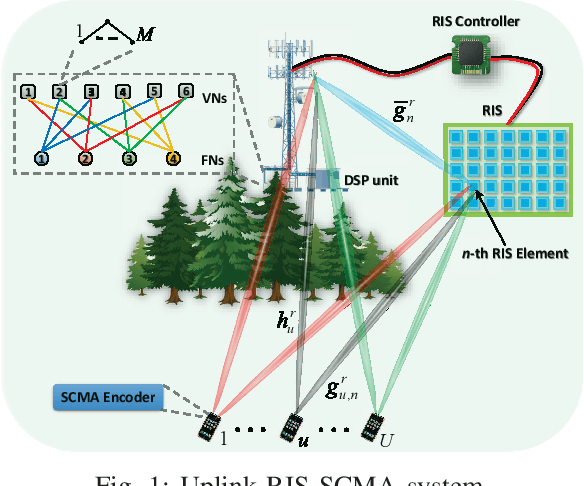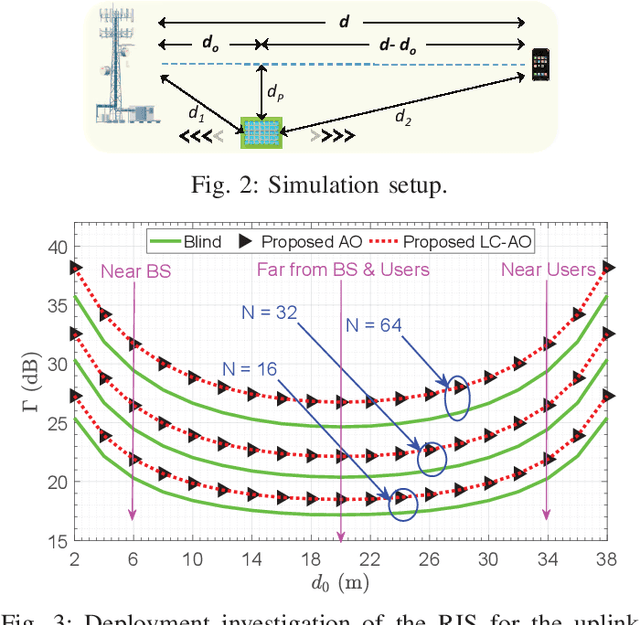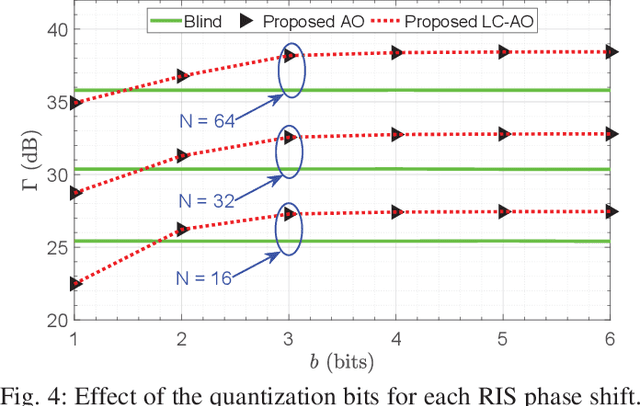Reconfigurable Intelligent Surface Optimization for Uplink Sparse Code Multiple Access
Paper and Code
Nov 30, 2021



The reconfigurable intelligent surface (RIS)-assisted sparse code multiple access (RIS-SCMA) is an attractive scheme for future wireless networks. In this letter, for the first time, the RIS phase shifts of the uplink RIS-SCMA system are optimized based on the alternate optimization (AO) technique to improve the received signal-to-noise ratio (SNR) for a discrete set of RIS phase shifts. The system model of the uplink RIS-SCMA is formulated to utilize the AO algorithm. For further reduction in the computational complexity, a low-complexity AO (LC-AO) algorithm is proposed. The complexity analysis of the two proposed algorithms is performed. Monte Carlo simulations and complexity analysis show that the proposed algorithms significantly improve the received SNR compared to the non-optimized RIS-SCMA scenario. The LC-AO provides the same received SNR as the AO algorithm, with a significant reduction in complexity. Moreover, the deployment of RISs for the uplink RIS-SCMA is investigated.
 Add to Chrome
Add to Chrome Add to Firefox
Add to Firefox Add to Edge
Add to Edge